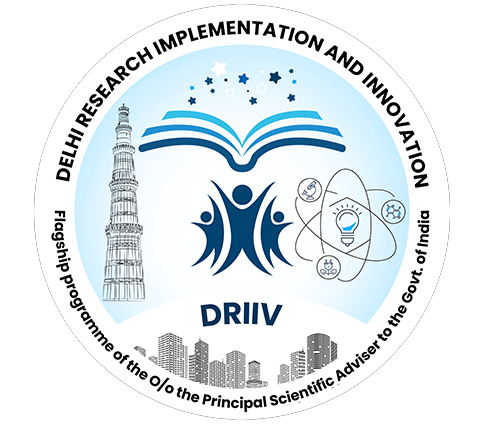 JNU
JNU




The DEEP-C's main objective is to improve learners' competencies in analytical, critical thinking, problem-solving, and inquiry skills and introduce them to the current fields of research and innovation to enhance their employability skills in the long run. DEEP-C's proposed academic activities and outcomes are inter-connected and integrals to other verticals of DRIIV kindling holistic transformation.
Experts from academia, industry, policy planning, innovators, practitioners and from legal fields discussed the scope of Public-Private -Partnership in higher education in the backdrop of NEP 2020 including various challenges and bottlenecks in implementing it. This 3-day long event, jointly hosted by CIC and DRIIV(EE) was inaugurated by Dr. Jitendra Singh, Union Minister of State(Independent charge) in the Ministry of S&T and Ministry of Earth Sciences.
 JNU
JNU
 CSIR
CSIR
 IGIB
IGIB
 IIIT-D
IIIT-D
 DU
DU
 IIT-D
IIT-D
 Ashoka University
Ashoka University
 NIPGR
NIPGR
 Sr. Venkateswara College
Sr. Venkateswara College
 Google Research India
Google Research India
NEP-2020 Education is the most important driver for bringing about social change, for achieving human potential, developing a society and for national development. According to the Sustainable Development Goal (SDG4) of the 2030 Agenda for Sustainable Development, adopted by India in 2015, emphasis should be given on quality education for achieving the learning outcomes and for building an equitable and resilient community. Science as a subject is important to learn as it helps us in making sense of the universe we live in and our own self as well as to develop scientific temper and scientific literacy. It helps in understanding some of the day-to-day phenomena that we see happening in daily life and provides us the reason behind the same, such as earthquakes, floods, diseases, tidal waves, leaves falling in autumn, etc. However, science needs to be taught in a process-oriented way rather than a didactic classroom practice. In order to understand the ‘Method of Science’, it is imperative that teaching of science takes place in a natural setting giving ample scope for observation, experimentation, hypothesis formation, analysis and drawing inferences. The core objective of DEEP-C is to improve education at schools and college/university levels so as to enhance students' competence, analytical ability and critical thinking by involving them in research and innovation and building their employability skills in the long run.